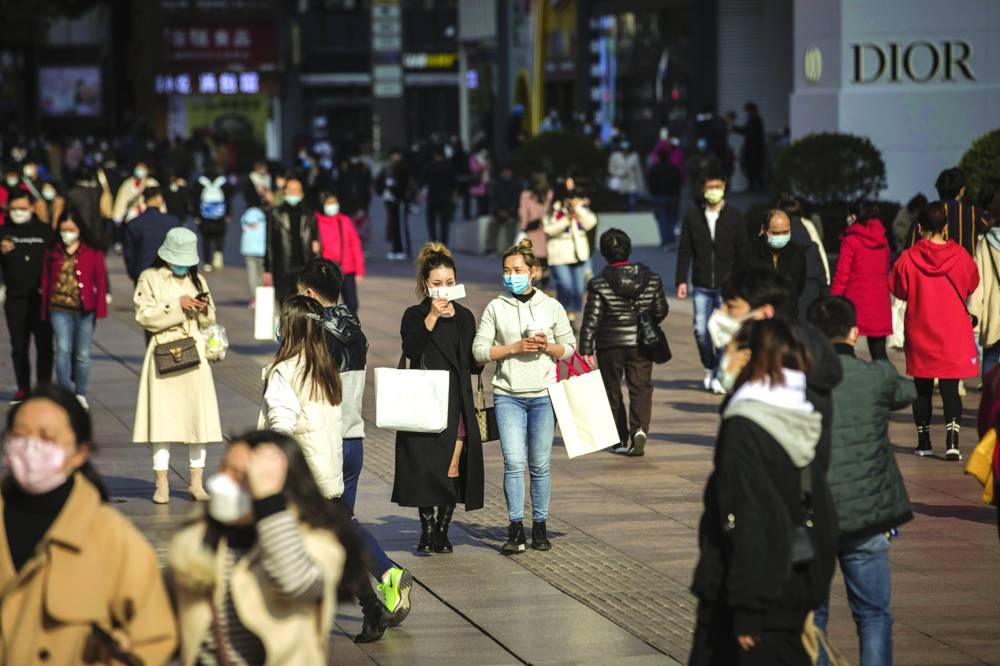China’s annual growth target looks increasingly out of reach to economists, with UBS Group AG adding to a string of recent forecast cuts as consumer spending slows and President Xi Jinping’s government avoids major stimulus.
With economic momentum held back by a real estate downturn and tight fiscal policy, the Swiss bank now expects China’s gross domestic product to expand 4.6% this year — compared with an earlier forecast of 4.9%. For 2025, UBS sees growth at 4%, down from 4.6% previously.
The downgrade, coming after weak earnings reports from several top Chinese consumer companies this month, reflects an emerging consensus among the world’s biggest banks that the country might not meet its growth aim of around 5% in 2024. By contrast, the Politburo — comprising the ruling Communist Party’s top 24 officials — has remained committed to achieving this year’s “economic and social development targets” that include the GDP goal.
But the real estate downturn is weighing heavily on domestic demand and confidence. China last missed its annual growth target in 2022, when Covid lockdowns and abrupt policy changes put that goal out of reach. “We expect weaker property activities to have a bigger drag on the overall economy than earlier expected, including through household consumption,” UBS economists including Wang Tao wrote in a note Wednesday.
Many analysts have slashed their projections for China’s $17tn economy after it slowed to its weakest pace in five quarters from April to June. Other banks sceptical about Beijing achieving its growth target include JPMorgan Chase & Co — which also predicts a 4.6% increase — and Nomura Holdings Inc, whose forecast is even lower at 4.5%.
They are among 51 of the 74 analysts tracked by Bloomberg that estimate the growth rate may come under 5% this year.
While China has been easing its policies since the end of 2022 to revive the property market — with steps including reduced down-payment requirements, lower mortgage rates and fewer restrictions on home purchases — the implementation of the measures has been slow and has had limited impact, according to UBS.
“China’s property demand and supply fundamentals have changed in recent years, market confidence is low amid weak household income growth, and inventory levels are high while destocking implementation has been slow,” the economists wrote. The bank downgraded its outlook for the real estate sector, and now expects a bottoming out of new starts only in mid-2026.
The nation’s housing slump has shown little sign of reversing. New-home sales fell almost 20% in July from a year earlier, while first-hand home prices dropped at their fastest pace on an annual basis in nine years. New home starts also continued to plunge at a clip of around 20%.
The crisis has dragged down everything from the job market to consumption and household wealth over the past two years.
The economic difficulties have contributed to a prolonged rout in the world’s second-largest stock market, despite various efforts by authorities to restore investor confidence. The CSI 300 Index, which tracks onshore Chinese equities, has fallen 4.2% in 2024 and is on track for an unprecedented fourth consecutive annual loss. In contrast, a broader index of Asian shares has risen nearly 10%.
The repercussions have spread to the broader financial market and swept up individual investors.
Nearly half of the 27 closed-end, three-year mutual funds launched in 2021 are facing losses of at least 40% as they near the end of their cycle, according to a report by the state-run China Securities Journal on Thursday.

Shoppers and pedestrians walk past stores on Nanjing Road in Shanghai (file). China’s annual growth target looks increasingly out of reach to economists, with UBS Group adding to a string of recent forecast cuts as consumer spending slows and government avoids major stimulus.
